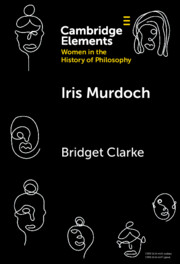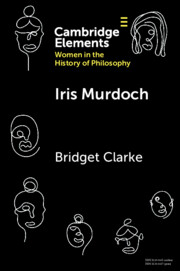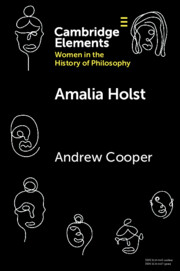Victoria Welby
In 1880s Britain, Victoria Welby (1837–1912) began creating a rich, wide-ranging metaphysical system. At its heart lies Motion, 'the great fact, the supreme category'. Drawing extensively on archive materials, this Element offers the first study of Welby's metaphysics. It portrays her universe as a complex of motions: motions comprise material bodies, living beings, and conscious minds. This dynamic universe, 'Motion', underlies many other elements of her thought, including her views on idealism, panpsychism, change, space, and anti-realism about time. This study shows that Welby's metaphysics are deeply embedded in the scientific-philosophical debates of her period, and variously draw on vortex theories of matter in physics; Victorian panpsychisms, fuelled by debates over the continuity of mind in Darwinian evolution; and new conceptions of time as the 'fourth dimension' of space. Victoria Welby significantly advances our understanding of Welby's philosophy, opening paths for future scholarship.
Product details
March 2023Paperback
9781009345866
75 pages
227 × 152 × 6 mm
0.14kg
Available
Table of Contents
- 1. Introducing Welby's Metaphysics
- 2. Sketching Welby's Life and Works
- 3. Material Bodies as Motions
- 4. Minds as (Immortal) Motions
- 5. Idealism: Motion as Spirit
- 6. Panpsychism: 'Mind-Activity' and Novelty in Nature
- 7. Time
- 8. Motion-Space
- 9. Final Thoughts: Motion and God.





